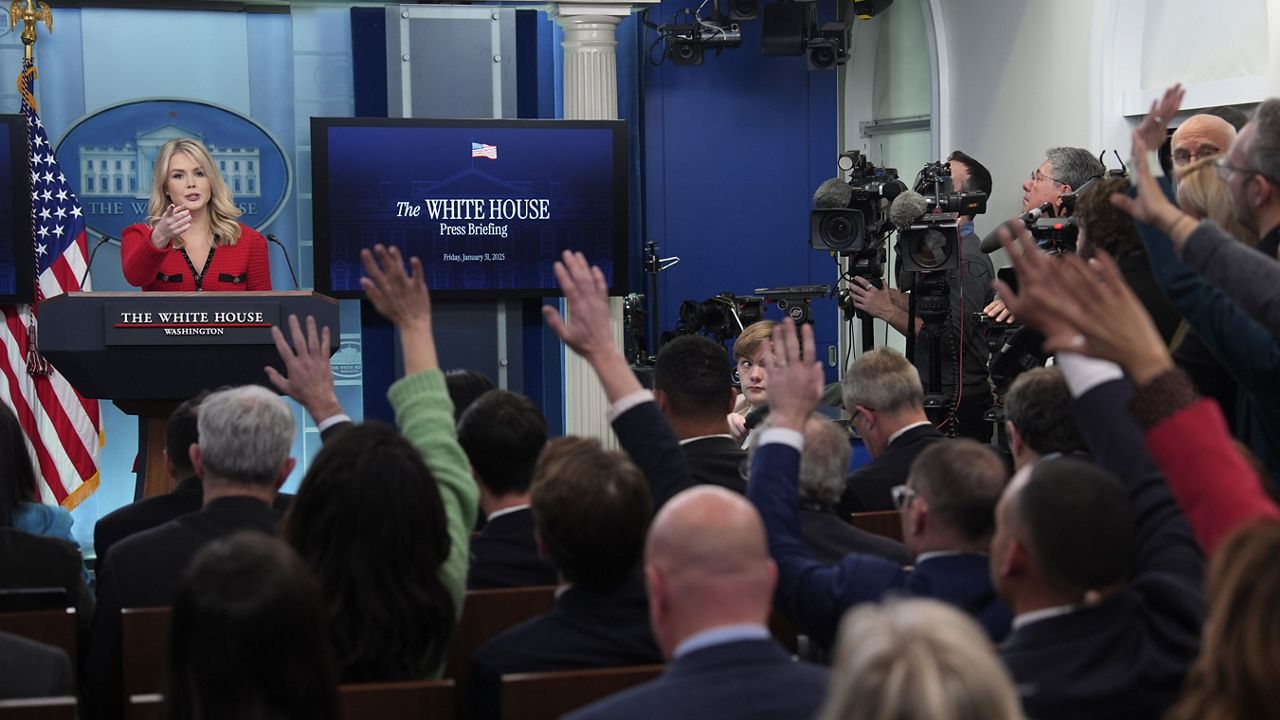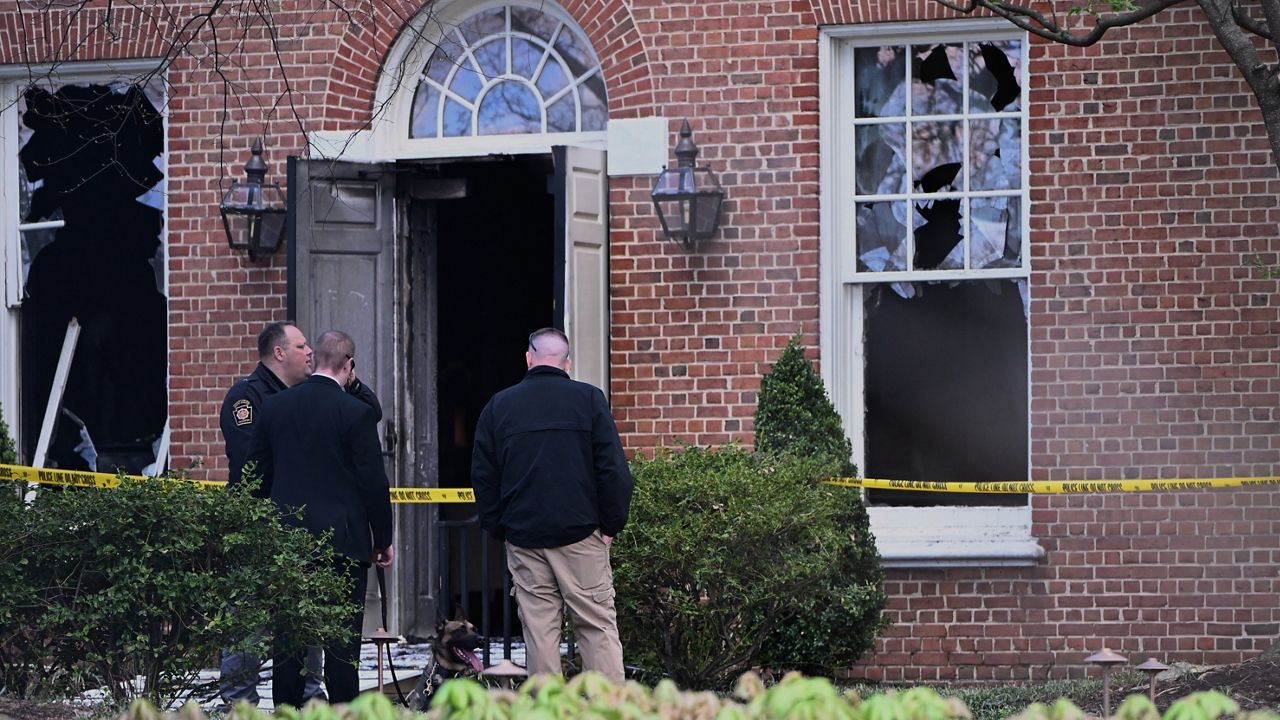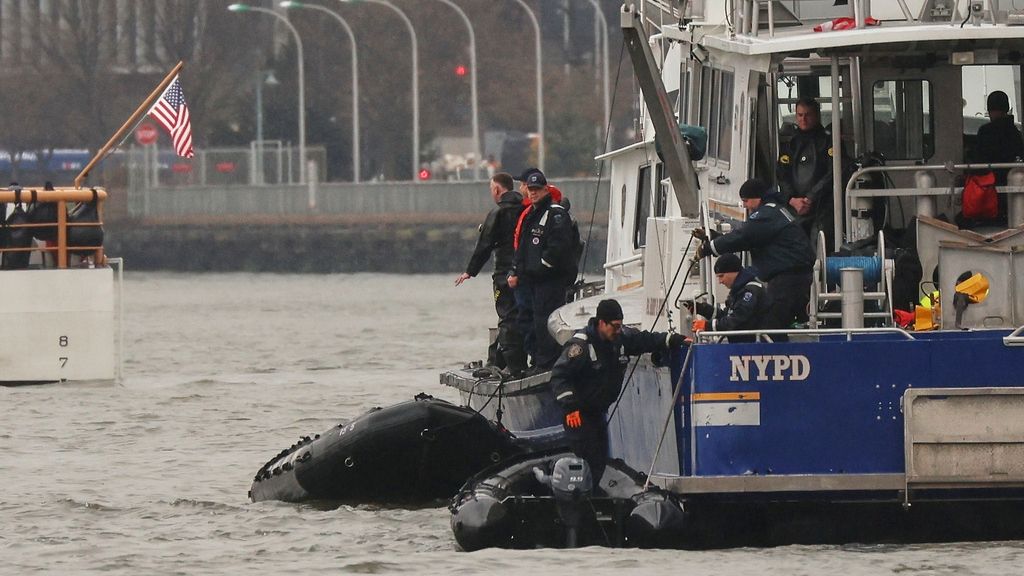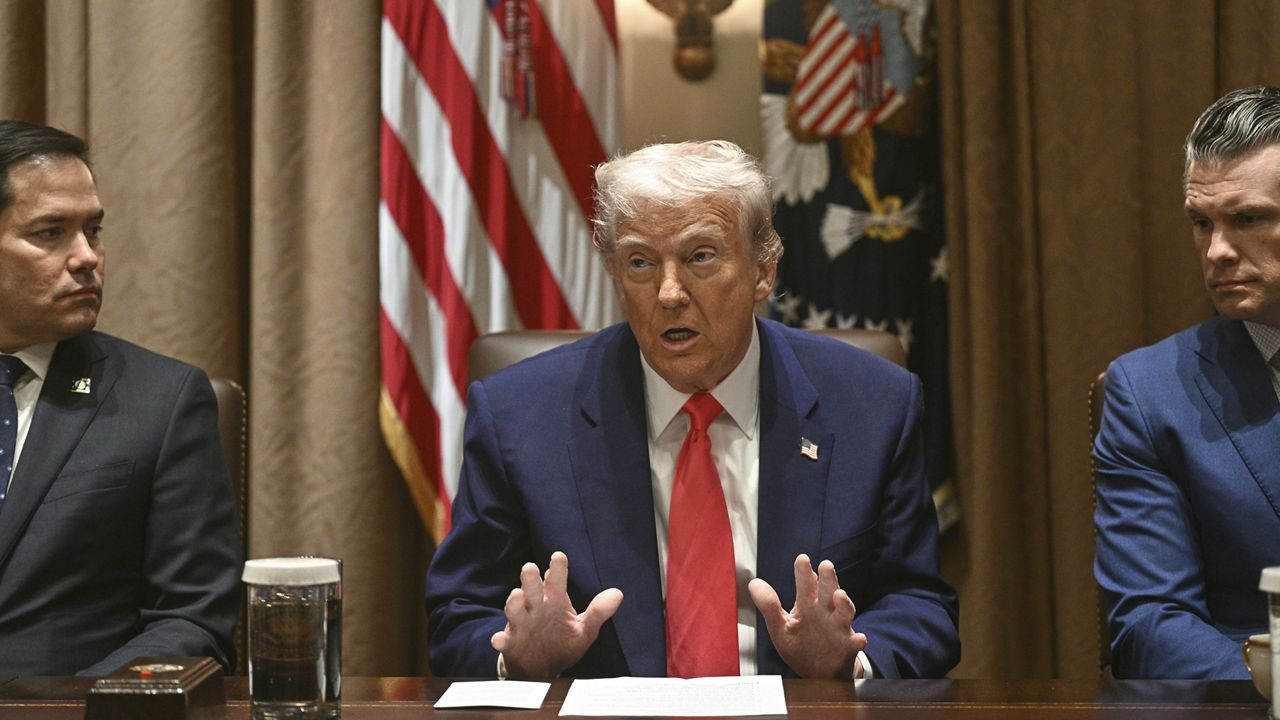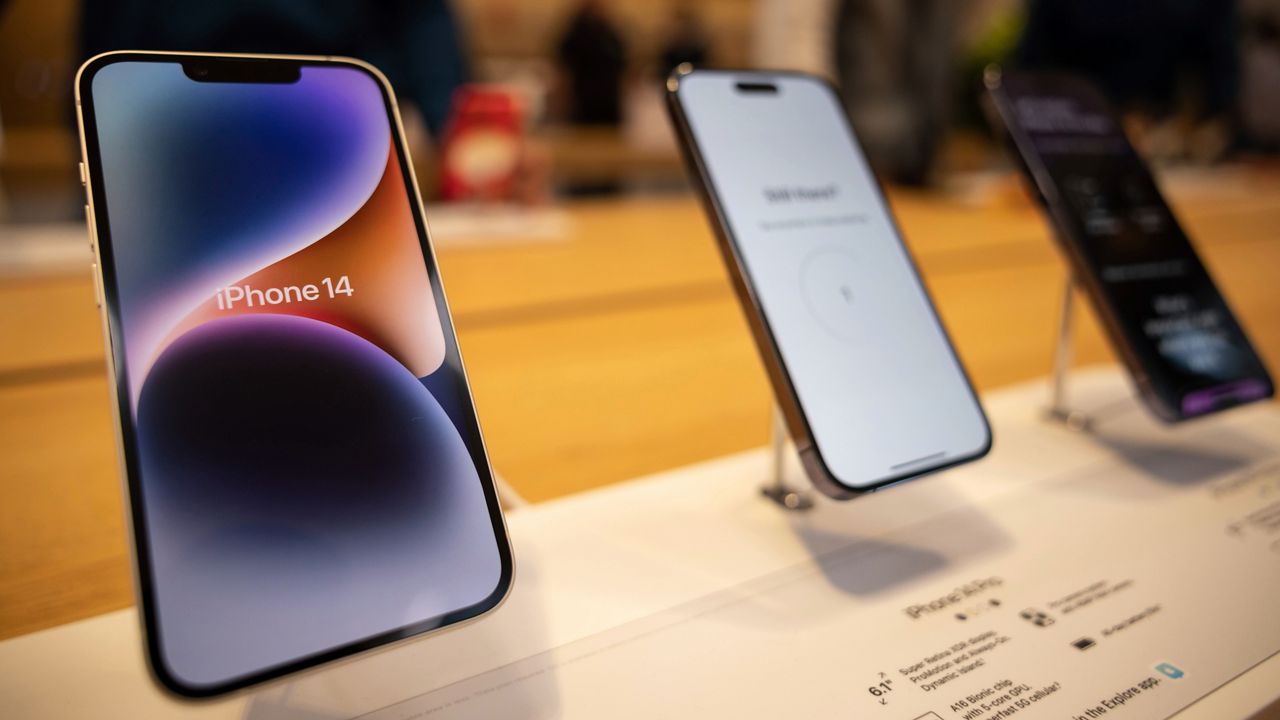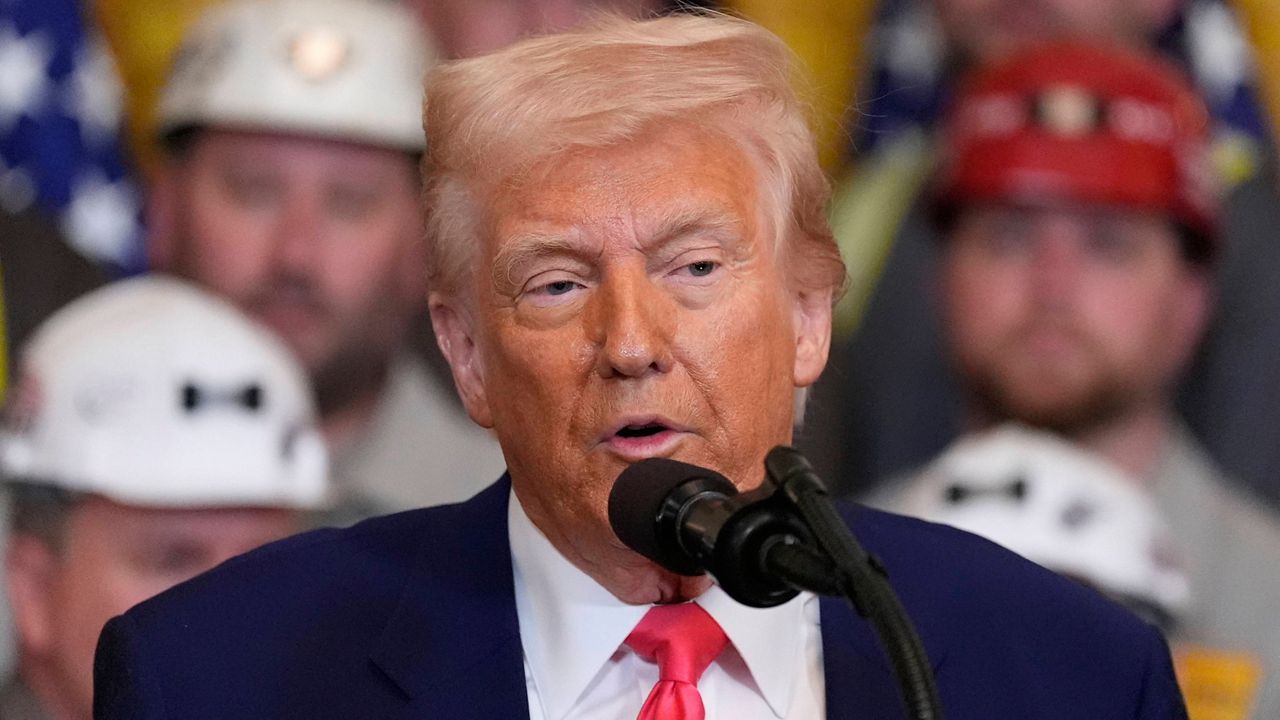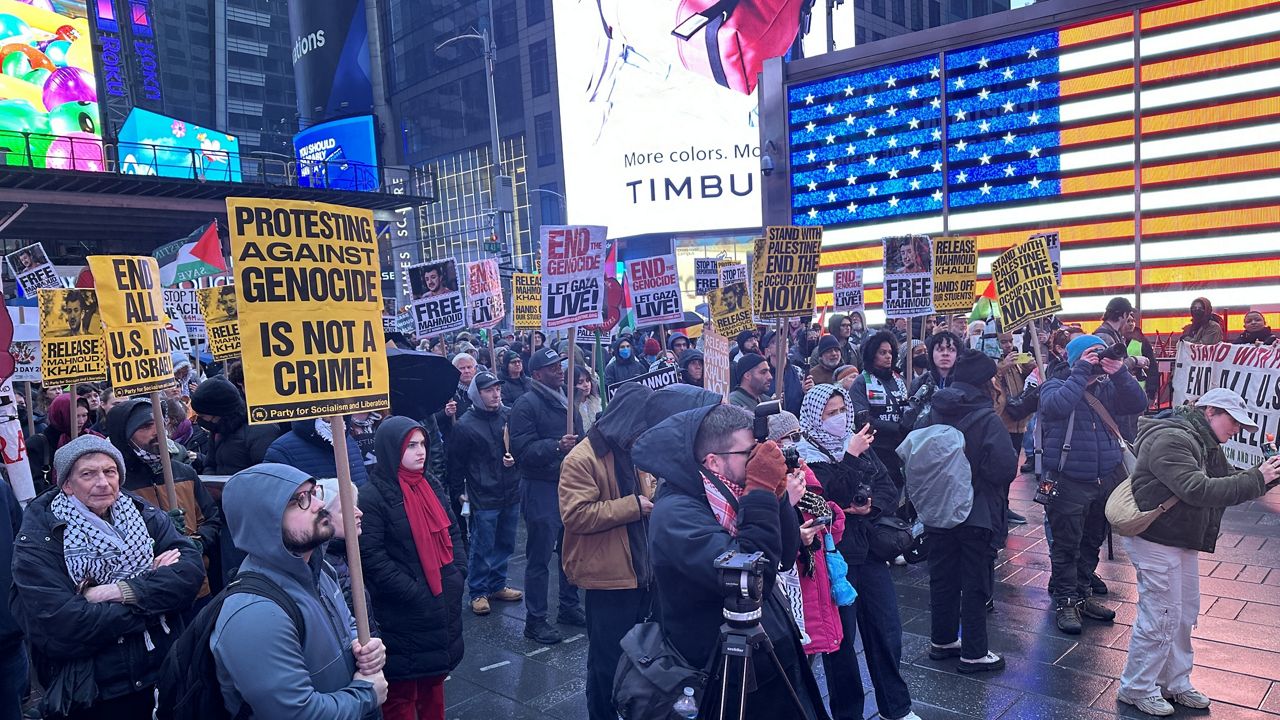WASHINGTON — Escalating hostilities with the press that covers it, the White House said Tuesday it will limit certain news outlets’ access to covering President Donald Trump and the administration “will decide” which media organizations' reporters will regularly cover the president, a break from decades of tradition and the latest attack on press independence since Trump returned to office.
News organizations that regularly cover the president at the White House and alongside him as he travels rotate reporters through what is called a White House “pool,” ensuring the president's days are always covered by members of the print, radio and TV news media, as well as photographers. White House press secretary Karoline Leavitt said Tuesday the pool reporting rotation, long assigned by the independent White House Correspondents’ Association, will instead be assigned by White House officials.
What You Need To Know
- The White House said Tuesday it will limit certain news outlets’ access to covering President Donald Trump and the administration “will decide” which media organizations’ reporters will regularly cover the president
- It's a break from decades of tradition and the latest attack on press independence since Trump returned to office
- News organizations that regularly cover the president at the White House and alongside him as he travels rotate reporters through what is called a White House “pool,” ensuring the president's days are always covered by members of the print, radio and TV news media
- White House press secretary Karoline Leavitt said that the pool reporting rotation, long assigned by the independent White House Correspondents’ Association, will instead be assigned by White House officials
- Leavitt cast the change as a modernization of the press pool, saying the move would be more inclusive and restore “access back to the American people” who elected Trump
“Moving forward, the White House press pool will be determined by the White House press team," Leavitt said. “A select group of D.C.-based journalists should no longer have a monopoly of press access at the White House.”
Leavitt said the changes will rotate traditional outlets from the group and include some streaming services. She cast the change as a modernization of the press pool, saying the move would be more inclusive and restore “access back to the American people” who elected Trump.
"This move tears at the independence of a free press in the United States," WHCA President Eugene Daniels, a White House correspondent for Politico, said in a statement. "It suggests the government will choose the journalists who cover the president. In a free country, leaders must not be able to choose their own press corps. Since its founding in 1914, the WHCA has sought to ensure that the reporters, photographers, producers and technicians who actually do the work — 365 days of every year — decide amongst themselves how these rotations are operated, so as to ensure consistent professional standards and fairness in access on behalf of all readers, viewers and listeners.”
Daniels also said that the White House did not give the WHCA a head's-up about the decision nor had there been prior discussions about potential changes. Responding to Leavitt’s claim that the decision was about expanding opportunities to less traditional news outlets, Daniels said that “for generations, the working journalists elected to lead” the WHCA “have consistently expanded the WHCA’s membership and its pool rotations to facilitate the inclusion of new and emerging outlets.”
White House correspondent Jacqui Heinrich, who works for Trump-friendly Fox News and serves on the WHCA’s board, decried the announcement by Leavitt.
“This move does not give the power back to the people — it gives power to the White House," Heinrich wrote on social media. "The WHCA is democratically elected by the full-time White House press corps. WHCA has determined pools for decades because only representatives FROM our outlets can determine resources all those outlets have — such as staffing — in order to get the President's message out to the largest possible audience, no matter the day or hour.”
The move came a day after a federal judge refused to immediately order the White House to restore The Associated Press' access to many presidential events. The news outlet, citing the First Amendment, sued Leavitt and two other White House officials for barring the AP from some presidential events over its refusal to call the Gulf of Mexico the “Gulf of America” as Trump ordered. AP has said its style would retain the “Gulf of Mexico” name but also would note Trump's decision.
U.S. District Judge Trevor N. McFadden said the AP had not demonstrated it had suffered irreparable harm. But he urged the Trump administration to reconsider its two-week-old ban, saying that case law in the circuit “is uniformly unhelpful to the White House.”
McFadden told attorneys for the Trump administration and the AP that the issue required more exploration before ruling. Another hearing was scheduled for late March.




